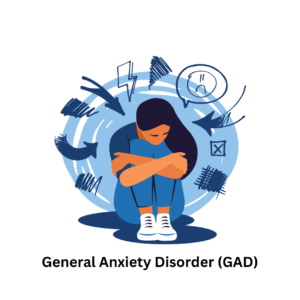Is anxiety taking over your life? Here’s when to see a doctor
 Anxiety is a normal response to stress, and part of being human. It is not in itself a disease.
Anxiety is a normal response to stress, and part of being human. It is not in itself a disease.
But when it becomes overwhelming, persistent, and starts affecting your daily life, it may be a sign of an anxiety disorder.
Generalised anxiety disorder (GAD) is a long-term condition that can make you feel anxious about various aspects of life.
It is the name doctors give to the medical condition of long-term anxiety, which is more than ‘normal life stress’.
Signs you may have GAD if you experience
- Your worrying is uncontrollable and causes distress
- Your worrying affects your daily life, including school, your job and your social life
- An inability to let go of your worries, even about minor concerns
- Constant worry about all sorts of things, such as health, work, finances and even everyday household chores.
Symptoms of Anxiety
- Feeling restless, nervous or constantly on edge, and increased irritability
- Fatigue or feeling drained easily
- Difficulty concentrating or a sense that your mind frequently goes blank
- Trouble falling or staying asleep
- Physical symptoms – e. g, muscle tension, chest tightness, feeling hot and sweaty, fast heart rate/palpitations, facial/upper chest rash (hives/urticaria).
When to see a doctor
You should seek medical advice if your anxiety:
- Affects your ability to function in daily life
- Causes ongoing distress
- Feels uncontrollable despite your efforts
- Interferes with your relationships, jobs, or social life.
A doctor, typically your General Practitioner (GP), can evaluate your symptoms and determine whether you have an anxiety disorder.
They may suggest treatment options, such as therapy, medication, or lifestyle changes, to help you manage your anxiety effectively.
If you are unsure, reach out to a healthcare professional for guidance.
Related posts
- 10 anxiety and panic attack facts
- Anxiety and depression: what’s the difference?
- 10 OCD (obsessive compulsive disorder) facts
- Introduction to mental illness

